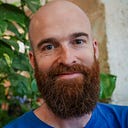Even though I almost failed my school exams at age 16, I turned my life around and went on to get a bachelor’s degree (BEng) in electronic engineering, a master of science (MS) in electrical engineering, and a master of arts (MA) in psychology. I also became a doctor of philosophy in clinical psychology, gaining a PhD after about ten years of study, research, and clinical practice.
I left my UK undergraduate university with a first-class honors degree, which indicates the highest level of academic achievement. During that time, I obtained a grade-point average (GPA) of 3.7 out of 4.0 and won three academic achievement awards. For my master of science degree, which was from Stanford University, I attained a GPA of 3.6 out of 4.3. That GPA is pretty good, but it could have easily been much higher, as I’ll explain later.
In spite of the fact that I have a ton of letters after my name—including a CEng, which conveys that I’m a UK Royal Chartered Engineer, gained through a rigorous peer-review process—I have come to understand that learning does not necessarily have to be associated with gaining official qualifications. As a lifelong learner, I now know the value of intentionally spending time every day learning something new, regardless of whether an academic organization will assess me and rubber-stamp my progress.
